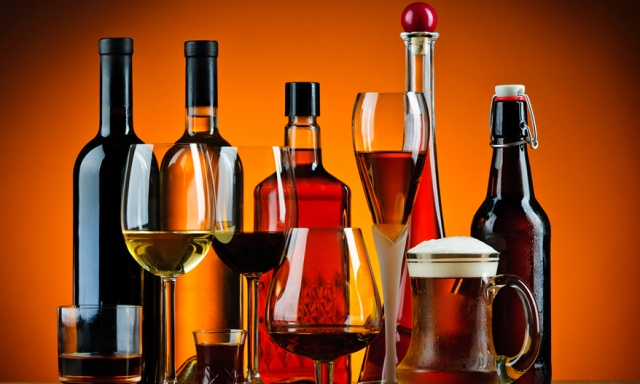Learn about the top 10 cancer causing foods and how to minimize their impact on your health.
Introduction
When it comes to our health, it’s important to be aware of the potential risks associated with the foods we consume. While no single food can guarantee the development of cancer, certain foods have been linked to an increased risk.
In their annual cancer progress report, The American Association for Cancer Research stated that:
“it is estimated that more than 50 percent of the 585,720 cancer deaths expected to occur in the United States in 2014 will be related to preventable causes.”
In this article, we will explore the top 10 cancer causing foods and provide some insights on how to minimize their impact on our health.
1. Processed Meats
Processed meats, such as hot dogs, sausages, and deli meats, have been classified as carcinogenic by the World Health Organization (WHO). These meats are often high in sodium, nitrates, and preservatives, which can increase the risk of colorectal and stomach cancers. It’s best to limit the consumption of processed meats and opt for fresh, unprocessed alternatives.
2. Red Meat
While red meat can be a good source of protein and essential nutrients, excessive consumption has been linked to an increased risk of various types of cancer, including colorectal, pancreatic, and prostate cancer. To reduce the risk, it’s advisable to choose lean cuts of meat and moderate the portion sizes.
A brand new study confirms the belief that red meat increases cancer risks. In an article from the San Diego Union-Tribune detailing the study, a sugar molecule, called Neu5Gc, becomes part of your own cells when it’s consumed.
3. Sugar-Sweetened Beverages
Sugar-sweetened beverages, such as sodas, energy drinks, and sweetened juices, are high in added sugars and empty calories. Regular consumption of these beverages has been associated with an increased risk of obesity, which is a known risk factor for several types of cancer. Opting for water, unsweetened tea, or natural fruit juices can be a healthier choice.
4. Highly Processed Snacks
Highly processed snacks, like chips, cookies, and crackers, often contain unhealthy fats, high levels of sodium, and artificial additives. These snacks can contribute to weight gain and inflammation, which are both linked to an increased risk of cancer. Choosing whole-food snacks, such as fruits, nuts, or homemade popcorn, can be a better option.
5. Deep-Fried Foods
Foods that are deep-fried, such as french fries, fried chicken, and doughnuts, contain high levels of unhealthy trans fats and acrylamide, a chemical compound formed during the frying process. Regular consumption of deep-fried foods has been associated with an increased risk of various types of cancer, including lung, breast, and prostate cancer. Opting for baked or grilled alternatives can help reduce the risk.
According to the National Cancer Institute, acrylamide is found in cigarette smoke and industrial building materials, as well as some foods. Both french fries and potato chips were found to have higher levels of this chemical, which studies have shown to increase the risk of cancer. Potatoes are also part of the Environmental Working Group’s “Dirty Dozen”, meaning they have some of the heaviest pesticide residues of all the fruits and vegetables.
Even the FDA has made a preliminary determination to say trans fats are not generally regarded as safe, as previously thought. You can avoid hydrogenated oil but instead choose coconut, palm, or olive oil.
6. Charred or Grilled Meats
When meats are cooked at high temperatures, such as grilling or barbecuing, they can produce heterocyclic amines (HCAs) and polycyclic aromatic hydrocarbons (PAHs), which are carcinogenic compounds. To minimize the risk, it’s important to avoid charring or burning the meat and to marinate it beforehand. Adding vegetables to the grill can also help reduce the formation of these compounds.
7. Artificial Sweeteners
While artificial sweeteners may seem like a healthier alternative to sugar, some studies have suggested a potential link between their consumption and an increased risk of cancer. However, more research is needed to establish a definitive connection. It’s advisable to use natural sweeteners, such as stevia or honey, in moderation instead.
CNCA Health warns this in turn, feeds cancer cells. Fructose, the type of sugar found in soda, is a serious cancer culprit as well. It contains caramel color, a known carcinogen. Soda acidifies the body, which in turn causes cancer cells to multiply. Skip the sodas altogether to limit your intake of refined sugars.
8. Canned Foods
Canned foods, especially those with acidic contents, often contain bisphenol A (BPA), a chemical compound that can disrupt the endocrine system and has been linked to an increased risk of cancer. Opting for fresh or frozen foods whenever possible can help reduce exposure to BPA.
9. Alcohol
Excessive alcohol consumption has been linked to an increased risk of several types of cancer, including liver, breast, and colorectal cancer. It’s recommended to limit alcohol intake and follow the guidelines provided by health organizations, such as moderate drinking for men (up to two drinks per day) and even less for women.

Alcohol is classified as a Group 1 carcinogen, which means there is sufficient evidence of carcinogenicity in humans.
10. Non-Organic Produce
Conventionally grown fruits and vegetables may be exposed to pesticides, which have been associated with an increased risk of cancer. Choosing organic produce or thoroughly washing and peeling non-organic fruits and vegetables can help reduce pesticide exposure.
With no testing done by the FDA to ensure safety, GMOs (genetically modified organisms) have made their way into the majority of our foods. These GMO foods have been modified to withstand heavy doses of a pesticide called glyphosate OR are engineered to contain a toxin that kills bugs.
Cancer-Fighting Foods
1. Fruit and vegetables
The Cancer Council tells us that fiber-rich diets that are achieved by eating adequate servings of fruit and vegetables every day can help prevent one in six bowel cancer cases.
Eating the recommended five servings of fruit and vegetables a day can help reduce your risk of oesophageal, lung, and some forms of mouth and throat cancer.
2. Tomatoes
Tomatoes contain high amounts of lycopene, a chemical that offers “moderate protection” against prostate cancer for those who consume large amounts of raw tomatoes. If you can introduce more tomatoes into your diet, be it raw, tinned, or cooked, it decreases your chances of getting prostate cancer. This is particularly relevant to men over 50, as this is the age at which the risk of prostate cancer increases.
3. Garlic
Not only does garlic add flavor to many meals, but it is also anti-carcinogenic. According to research by the Cancer Council Australia, high levels of allium vegetables (such as onions, garlic, and shallots) reduce the risk of stomach cancer. They state that garlic “probably” protects against bowel cancer.
Add more garlic to your diet by making fresh, homemade dishes for lunches and dinners rather than shop-bought-ready meals. Meals like stir-fries, chicken hot pots (a warm broth with chicken, vegetables, and noodles or potatoes cooked in a single pot), and oven-baked fish dishes can all be made using plenty of garlic.
4. Citrus Fruits
Research suggests that citrus intake may significantly reduce the risk of esophageal cancer. A review looking at nine studies also found that a greater intake of citrus fruits was linked to a reduced risk of pancreatic cancer.
5. Carrots
They may not help you see in the dark, but there is “suggestive evidence” that carrots can lower the risk of cervical cancer. High in vitamin A and antioxidants, carrots are also high in fiber, which can help keep you regular and minimize the risk of bowel cancer.
To make sure you’re eating enough carrots, try eating snacks such as carrot sticks and hummus. A quick and tasty snack, they’re also easy to eat at your desk or on-the-go.
6. Wholegrains
There is strong evidence that eating whole grains helps protect against colorectal cancer. Wholegrains contain dietary fibre and include brown rice, wholegrain bread, quinoa, spelled, and oats. As well as protecting against some types of cancer, they are also known to improve digestion and reduce cholesterol levels.
Conclusion
While it’s important to be aware of the potential risks associated with certain foods, it’s equally important to maintain a balanced and varied diet. Incorporating a wide range of fruits, vegetables, whole grains, and lean proteins can help mitigate the potential negative effects of these cancer-causing foods. Additionally, adopting a healthy lifestyle that includes regular physical activity, maintaining a healthy weight, and avoiding smoking can further reduce the risk of developing cancer.
Sources:
http://www.cancer.org/cancer/cancerbasics/lifetime-probability-of-developing-or-dying-from-cancer
- http://cancerprogressreport.org/2014/Documents/AACR_CPR_2014.pdf
- http://www.mayoclinic.org/diseases-conditions/high-blood-cholesterol/in-depth/trans-fat/art-20046114?pg=1
- http://www.newsmaxhealth.com/Dr-Brownstein/omega-fat-oil-hydrogenated/2014/12/23/id/614699/
- http://www.cancer.gov/cancertopics/factsheet/Risk/acrylamide-in-food
- http://www.drweil.com/drw/u/QAA400701/Microwave-Popcorn-Threat.html
- https://www.organicconsumers.org/old_articles/foodsafety/processedmeat050305.php
- http://www.utsandiego.com/news/2014/dec/29/red-meat-cancer-varki-neu5Gc-sialic/
- http://www.medscape.com/viewarticle/827014
- http://www.albany.edu/news/releases/2005/nov2005/salmon_benefits.shtml
- http://www.cncahealth.com/explore/learn/cancer-awareness/cut-your-cancer-risk-avoid-these-top-five-cancer-causing-foods#.VKxK3IrF_ds
- http://www.cancer.org/cancer/cancercauses/othercarcinogens/athome/aspartame
- http://www.integrativeoncology-essentials.com/2012/07/anti-cancer-nutrition-sugar-and-carbohydrates-101/




